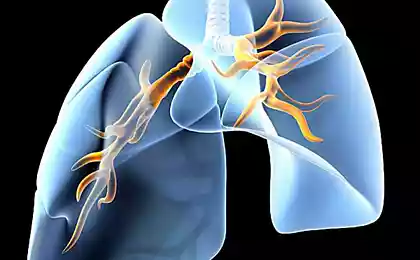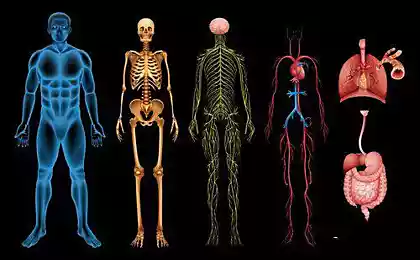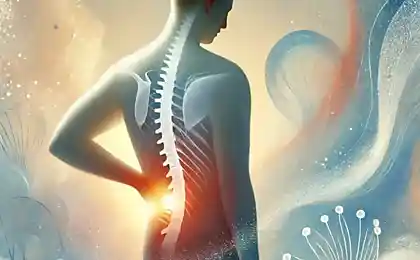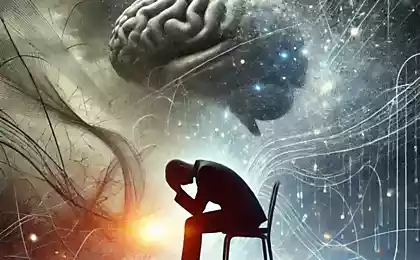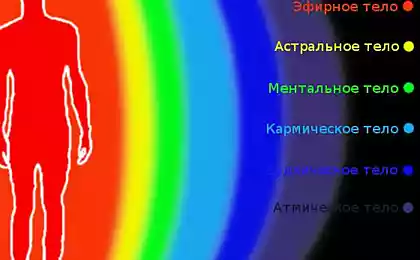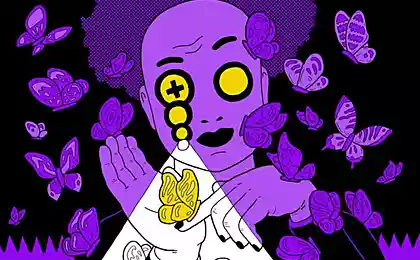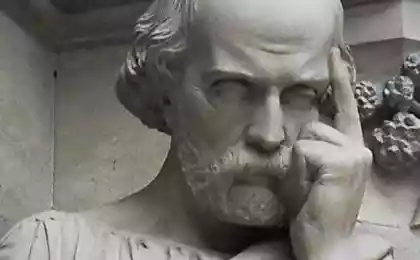643
He wants to tell the body from the point of view of psychosomatics
What is psychosomatic and what is different "psychosomatic" approach to the diseases medical?
Psychosomatics (ancient Greek. ψυχή — soul, and σῶμα — body) is a field in psychology that studies the influence of psychological factors on the occurrence and course of somatic (bodily) diseases.
What is the difference between psychosomatic and medical approaches to the diseases and symptoms?
MEDICINE
PSYCHOSOMATICS
The difference at the level of concepts
"He has an ulcer", "Resnik", has cancer, etc.
That is, the disease is self-identification becomes a defining human characteristic.
The disease is perceived as something definitely bad as something from the outside deforms the very essence of man, "something inappropriate, a perfectly functioning organism."
Something makes the body deeply defective, "broken".
The disease is a superficial process. Does not affect the core of a person, his identity.
I'm healthy! But I'm coughing, my nose is running. Is a symptom.
Just now, it burns it never hurt before and can pass.
Disease
The disease in this paradigm, senseless and merciless – it is an "accident".
The disease is war. We fight and die or win and kill.
Man is fighting against the disease resists, inhibits!
The disease is clearly associated with the life and behavior of human process, that contribute to our development.
With the help of the disease we grow, develop and change, the "pass through limitations".
This is our guide, Master, if you will, it carries valuable information.
Illness is our enemy, and most of all feedback from the world to our way of being.
Health
Medicine for the most part very rarely deals with health, perhaps the only physiologists.
Medicine deals with the study of diseases.
Health is harmony and balance, the object of study and comprehension.
The disease is just a point on the path of health, an indication that we are out of balance and unable to go back.
What tell us the processes occurring in the body, from the point of view of psychosomatics?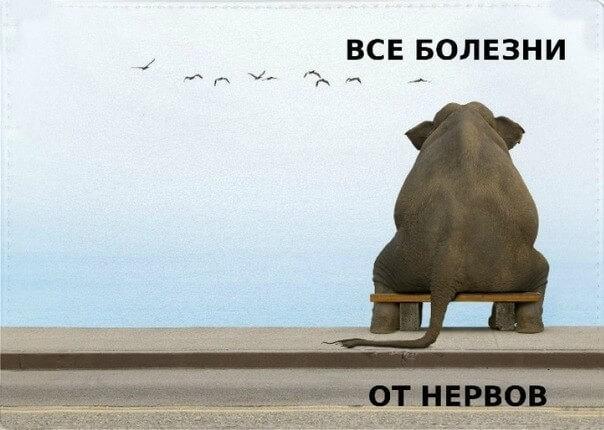
Inflammation. this illustrates the body of the existing situation of internal conflict. It doesn't matter where — on the skin, throat, tooth, nerve, internal organs. Where whatever happens inflammation it means struggle and resistance. That is one part of you fighting the other one.
This can indicate an internal conflict of "ideas", "ideals", "right" and "want", "thoughts" and "feelings", etc. there is always important to remember what was happening in my life at the beginning of the inflammation. Does one or the other situation you have an ambivalent relationship.
The greater the inflammation the greater the conflict. The larger the area of inflammation, the higher the importance of this internal conflict in your life.
The suppuration. Characterizes the process by which the inside of a penetrated something "alien". And the body of the white blood cells makes the insulating cocoon.
By "alien" I mean someone else's idea, thought, will, something imposed, that is something with which you disagree.
Forces to reject that something, and to disagree openly and out loud, including at the behavioral level, is not enough. And the person chooses to endure and to be with it, and even so, that this alien influence in his life.
Also abscess occurs when a foreign idea is accepted/selected/placed by man in their world.
But he feels that around this idea of "pile of dirt" and she essentially is an alien/unacceptable to his attitudes and values, due to upbringing or other factors.
That is, the power to quickly expel the "contagion" is not. And understanding what needs to change at the level of action, also. Or this change is limited to experience "inner conflict". And as a result, changes in the life of man does not produce.
In this case, the body, taking care of us, offering: "come on, that is, isolate the irritant and patient. Cut off from the problem."
There is even an expression: "Open the abscess – to solve the problem."
Tumor. Traumatic event/idea/identity/"injustice" that began to take up too much space in your life, takes the lion's share of your attention. Ie, it literally destroys your vitality. Physically, this says that something was more than it was.
In fact it can be not only the tumor but also the flux and the cyst. That is something increased in size. Physiologically it was normal size, and then began to take a lot of space.
The larger the tumor, the more attention a specific aspect of life. That is in a person's life, literally there is something SUPER MEANINGFUL, something he caught his attention and ignores everything around, which is going to die. For example the death of a close person, dismissal from work. This most often happens on an unconscious level but sometimes it is obvious and conscious.
Spasms. When something is clamped. Anywhere. In the blood vessels in the head, in his hands. Any spasm is the desire to hold on to what is already there. To grab and hold. To stay in the old situation. Don't let new.
Cramp. The simultaneous desire to do and not to do something. Ambivalent aspirations. To say "Yes" and "no." To leave – to come.
Also you consider everything about ticks. For example , the eye twitch, "we must look, but really do not want". Solution is to resolve the internal conflict at the level of thoughts and actions.
Sometimes there are convulsions, before going to sleep in the muscles of the legs. Most often this happens when people are very active all day. And when the mind is already there, the command "sleep", but inside you still continue to run/to burst/to think of as "important".
Helps in this case to do a reverse lookup the day when you are mentally reviewing your day in reverse order. From evening to morning, to finish the day.
Itching. Itching may be in different places.If it itches for a long time and everywhere the topic is important. The overall theme of impatience, anxiety, nervousness. The process of combing on a physiological level simulates the process of digging. Itching is a burning desire to get to the bottom. When we want to understand something – scratching their head. Then look at the localization of itch.
Fatigue. Now I'm not talking about natural physical fatigue, and the so-called "chronic fatigue".
In fact, this unwillingness to do something. Man forces himself to do something he doesn't like.
And instead of, for example, to change jobs to the beloved and to do what gives joy, people in favor of social stereotypes, continues to be engaged in unloved business.
There is no "chronic fatigue" in General, only fatigue on a particular subject.
Pay attention to how you are able to Express negative emotions. Most often it is anger or irritation. The suppression of strong emotions or desires also occurs chronic fatigue, because in fact emotions/desire is energy. Control and containment of the self-energy (emotions, for example, because it is not acceptable for your mother) lead to a double waste of energy — and their true desires/emotions, and suppress them.
The issue here is always the same – what you don't want to do?
Pain. It is a friend, adviser and informant. Pain is a signal coming from the body and eye-catching. If something hurts — don't turn off the pain pills. It will not save your body from fire. Unless the pain is unbearable, then Yes. If the pain bearable it is important to live, to observe, to accept and NOT to FIGHT. The resistance increases the pressure.
To get the maximum information about the pain, try to observe it carefully.
Please note the following points:
The process of breathing
Exchange with the world. On the inhale we absorb the world, information, life, take over the world. Exhale – presented itself to the world, give the world.
Problems with breathing are inhaling, sinking breath, and exhale.
When problems with breath + breathing is shallow. There are difficulties to take from the world, to perceive the world as it is, to accept his gifts quietly.
When holding my breath. Can be situational — fear of life.
Exhale – a term that describes how we presented ourselves to the world, and the complexity of them characterize the expression itself. For example, "what can I say, I don't know", hence the problem with the exhale.
On this principle of balance and awareness built breathing practices. If breathing is to harmonize the interaction with the world becomes much nicer.
If suddenly there is an acute fear of something, you need to learn how to restore maintain your breathing!
For example, for a uniform account 3+3+3 (breath/delay/exhale). A deep full BREATH. Situation tension will go away.
If you are scared to show themselves, that is, implemented the theme of passivity – need to learn with effort, long, bright, with sound, exhale. And to overcome the difficulty of self-disclosure is very effective there is singing.
Instead of the tantrums and whining spasticescomu, it is important to learn to say what you want. Yelling is also possible and useful – important to exhale. The Creek also built a technology allowing to live a traumatic situation.
Cough. A loud exhale. This happens much significantly, it can hear you. It's dissonant. That is the theme of "the inner critic". Instead of being an external critic and tell people that he is not satisfied, coquettish man is silent. That is, he knows that "they are wrong" but instead to say, he is silent. Often seen in the theatre and on the concert (a mass attack).
Often the training is similar psychosomatics. You just need everyone to say and/or to resolve the situation on an external level, through the action and stop coughing.published
Author: Ekaterina Shmorgun
The materials are for informational purposes. Remember, self-life-threatening, for advice regarding the use of any medicines and methods of treatment, contact your doctor.
P. S. And remember, only by changing their consumption — together we change the world! ©
Source: www.free-apple.ru/index.php/myworks/multiple-sclerosis-2/238-psy1
Psychosomatics (ancient Greek. ψυχή — soul, and σῶμα — body) is a field in psychology that studies the influence of psychological factors on the occurrence and course of somatic (bodily) diseases.
What is the difference between psychosomatic and medical approaches to the diseases and symptoms?
MEDICINE
PSYCHOSOMATICS
The difference at the level of concepts
"He has an ulcer", "Resnik", has cancer, etc.
That is, the disease is self-identification becomes a defining human characteristic.
The disease is perceived as something definitely bad as something from the outside deforms the very essence of man, "something inappropriate, a perfectly functioning organism."
Something makes the body deeply defective, "broken".
The disease is a superficial process. Does not affect the core of a person, his identity.
I'm healthy! But I'm coughing, my nose is running. Is a symptom.
Just now, it burns it never hurt before and can pass.
Disease
The disease in this paradigm, senseless and merciless – it is an "accident".
The disease is war. We fight and die or win and kill.
Man is fighting against the disease resists, inhibits!
The disease is clearly associated with the life and behavior of human process, that contribute to our development.
With the help of the disease we grow, develop and change, the "pass through limitations".
This is our guide, Master, if you will, it carries valuable information.
Illness is our enemy, and most of all feedback from the world to our way of being.
Health
Medicine for the most part very rarely deals with health, perhaps the only physiologists.
Medicine deals with the study of diseases.
Health is harmony and balance, the object of study and comprehension.
The disease is just a point on the path of health, an indication that we are out of balance and unable to go back.
What tell us the processes occurring in the body, from the point of view of psychosomatics?

Inflammation. this illustrates the body of the existing situation of internal conflict. It doesn't matter where — on the skin, throat, tooth, nerve, internal organs. Where whatever happens inflammation it means struggle and resistance. That is one part of you fighting the other one.
This can indicate an internal conflict of "ideas", "ideals", "right" and "want", "thoughts" and "feelings", etc. there is always important to remember what was happening in my life at the beginning of the inflammation. Does one or the other situation you have an ambivalent relationship.
The greater the inflammation the greater the conflict. The larger the area of inflammation, the higher the importance of this internal conflict in your life.
The suppuration. Characterizes the process by which the inside of a penetrated something "alien". And the body of the white blood cells makes the insulating cocoon.
By "alien" I mean someone else's idea, thought, will, something imposed, that is something with which you disagree.
Forces to reject that something, and to disagree openly and out loud, including at the behavioral level, is not enough. And the person chooses to endure and to be with it, and even so, that this alien influence in his life.
Also abscess occurs when a foreign idea is accepted/selected/placed by man in their world.
But he feels that around this idea of "pile of dirt" and she essentially is an alien/unacceptable to his attitudes and values, due to upbringing or other factors.
That is, the power to quickly expel the "contagion" is not. And understanding what needs to change at the level of action, also. Or this change is limited to experience "inner conflict". And as a result, changes in the life of man does not produce.
In this case, the body, taking care of us, offering: "come on, that is, isolate the irritant and patient. Cut off from the problem."
There is even an expression: "Open the abscess – to solve the problem."
Tumor. Traumatic event/idea/identity/"injustice" that began to take up too much space in your life, takes the lion's share of your attention. Ie, it literally destroys your vitality. Physically, this says that something was more than it was.
In fact it can be not only the tumor but also the flux and the cyst. That is something increased in size. Physiologically it was normal size, and then began to take a lot of space.
The larger the tumor, the more attention a specific aspect of life. That is in a person's life, literally there is something SUPER MEANINGFUL, something he caught his attention and ignores everything around, which is going to die. For example the death of a close person, dismissal from work. This most often happens on an unconscious level but sometimes it is obvious and conscious.
Spasms. When something is clamped. Anywhere. In the blood vessels in the head, in his hands. Any spasm is the desire to hold on to what is already there. To grab and hold. To stay in the old situation. Don't let new.
Cramp. The simultaneous desire to do and not to do something. Ambivalent aspirations. To say "Yes" and "no." To leave – to come.
Also you consider everything about ticks. For example , the eye twitch, "we must look, but really do not want". Solution is to resolve the internal conflict at the level of thoughts and actions.
Sometimes there are convulsions, before going to sleep in the muscles of the legs. Most often this happens when people are very active all day. And when the mind is already there, the command "sleep", but inside you still continue to run/to burst/to think of as "important".
Helps in this case to do a reverse lookup the day when you are mentally reviewing your day in reverse order. From evening to morning, to finish the day.
Itching. Itching may be in different places.If it itches for a long time and everywhere the topic is important. The overall theme of impatience, anxiety, nervousness. The process of combing on a physiological level simulates the process of digging. Itching is a burning desire to get to the bottom. When we want to understand something – scratching their head. Then look at the localization of itch.
Fatigue. Now I'm not talking about natural physical fatigue, and the so-called "chronic fatigue".
In fact, this unwillingness to do something. Man forces himself to do something he doesn't like.
And instead of, for example, to change jobs to the beloved and to do what gives joy, people in favor of social stereotypes, continues to be engaged in unloved business.
There is no "chronic fatigue" in General, only fatigue on a particular subject.
Pay attention to how you are able to Express negative emotions. Most often it is anger or irritation. The suppression of strong emotions or desires also occurs chronic fatigue, because in fact emotions/desire is energy. Control and containment of the self-energy (emotions, for example, because it is not acceptable for your mother) lead to a double waste of energy — and their true desires/emotions, and suppress them.
The issue here is always the same – what you don't want to do?
Pain. It is a friend, adviser and informant. Pain is a signal coming from the body and eye-catching. If something hurts — don't turn off the pain pills. It will not save your body from fire. Unless the pain is unbearable, then Yes. If the pain bearable it is important to live, to observe, to accept and NOT to FIGHT. The resistance increases the pressure.
To get the maximum information about the pain, try to observe it carefully.
Please note the following points:
- localization (in this moment, right now) to understand what it was about, for the interpretation of parts of the body;
- duration (how long lasts, there is all the time or periods when it is usually and in what situations, morning or evening);
- the intensity (when weaker when the stronger);
- the character of the pain (stabbing, cutting ("the situation cuts us to pieces"), drilling, pressing, aching ("self-pity", etc).
The process of breathing
Exchange with the world. On the inhale we absorb the world, information, life, take over the world. Exhale – presented itself to the world, give the world.
Problems with breathing are inhaling, sinking breath, and exhale.
When problems with breath + breathing is shallow. There are difficulties to take from the world, to perceive the world as it is, to accept his gifts quietly.
When holding my breath. Can be situational — fear of life.
Exhale – a term that describes how we presented ourselves to the world, and the complexity of them characterize the expression itself. For example, "what can I say, I don't know", hence the problem with the exhale.
On this principle of balance and awareness built breathing practices. If breathing is to harmonize the interaction with the world becomes much nicer.
If suddenly there is an acute fear of something, you need to learn how to restore maintain your breathing!
For example, for a uniform account 3+3+3 (breath/delay/exhale). A deep full BREATH. Situation tension will go away.
If you are scared to show themselves, that is, implemented the theme of passivity – need to learn with effort, long, bright, with sound, exhale. And to overcome the difficulty of self-disclosure is very effective there is singing.
Instead of the tantrums and whining spasticescomu, it is important to learn to say what you want. Yelling is also possible and useful – important to exhale. The Creek also built a technology allowing to live a traumatic situation.
Cough. A loud exhale. This happens much significantly, it can hear you. It's dissonant. That is the theme of "the inner critic". Instead of being an external critic and tell people that he is not satisfied, coquettish man is silent. That is, he knows that "they are wrong" but instead to say, he is silent. Often seen in the theatre and on the concert (a mass attack).
Often the training is similar psychosomatics. You just need everyone to say and/or to resolve the situation on an external level, through the action and stop coughing.published
Author: Ekaterina Shmorgun
The materials are for informational purposes. Remember, self-life-threatening, for advice regarding the use of any medicines and methods of treatment, contact your doctor.
P. S. And remember, only by changing their consumption — together we change the world! ©
Source: www.free-apple.ru/index.php/myworks/multiple-sclerosis-2/238-psy1









